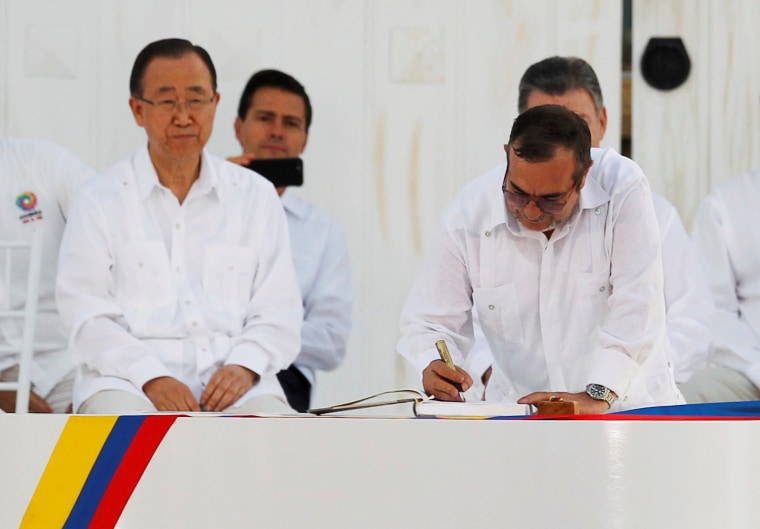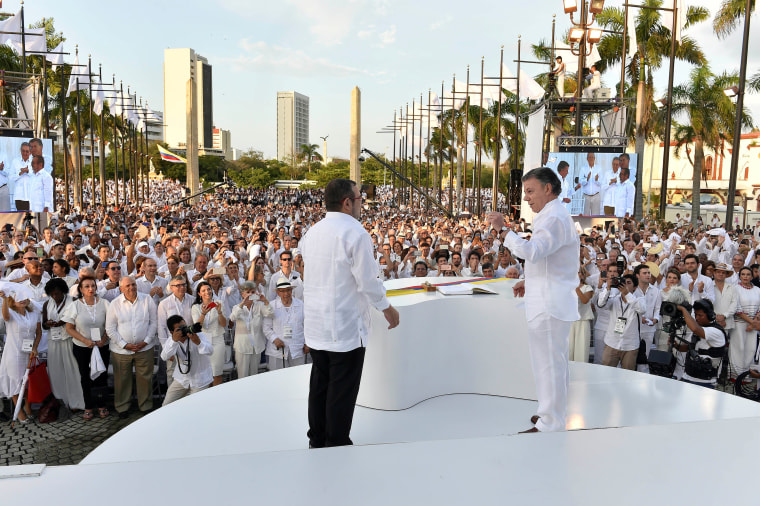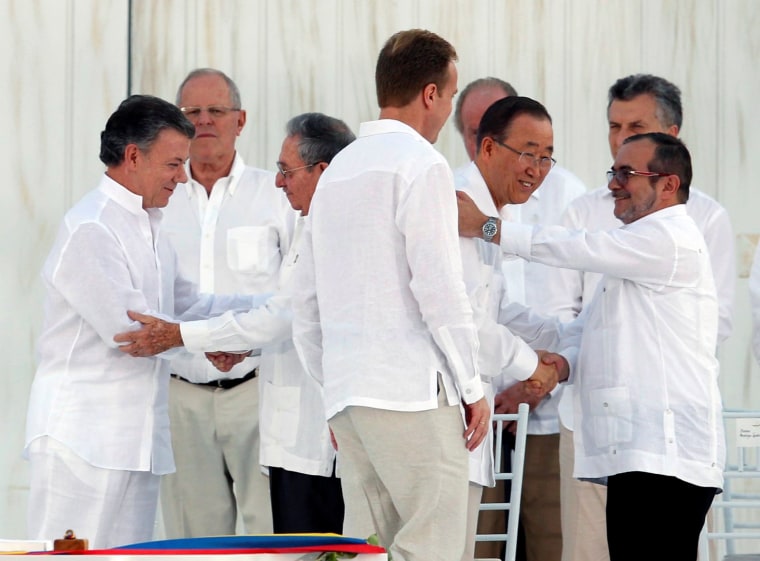After ending five decades of bloody conflict, the government of Colombia and the Marxist FARC rebels signed a peace accord Friday. As a result, Colombia and rebel leaders are up for a Nobel Peace Prize, and Pope Francis has promised to visit.
Colombia's President Juan Manuel Santos says Pope Francis will pay a visit to his country in the first quarter of 2017. Santos announced the upcoming four-day visit a meeting of the country's petroleum industry.
The pope promised in February to visit Colombia if the country's government and rebels signed a peace treaty to end Latin American's longest-running conflict. The treaty was signed on Monday, though it still must be ratified by voters.
Colombia could also receive a Nobel Peace Prize next week due to the signing of a peace accord that has ended half-century of war that has left hundreds of thousands of people dead.

The Nobel Peace Prize might be shared by Marxist FARC leader Timoleón Jiménez, known as Timonchenko, and the President Juan Manuel Santos.
"The agreement ... is one of the most obvious peace prize candidates I've ever seen," said Asle Sveen, a historian who tracks the awards. Still, he said a prize may hinge on a "Yes" to the agreement in a referendum in Colombia on Sunday.
RELATED: Colombia to Sign Peace Accord After 5 Decades of Violence
This moment is significant because it would be the first award for Latin America since Guatemalan human rights activist Rigoberta Menchu won in 1992.
Kristian Berg Harpviken, head of the Peace Research Institute, Oslo, puts Gannushkina as his favorite, with Colombia second, saying such a prize would be an overdue rebuke to President Vladimir Putin.

"Ten years into the future there's a risk that it will be seen as major omission by the Nobel Committee," he said of a lack of criticisms of Russian restrictions on human rights and the annexation of Ukraine's Crimea region in 2014.
RELATED: Colombia Pushes for Quick Vote on Peace Deal with FARC
An award for Colombia would shift the prize back to traditions of peace-making by individuals. The five-strong Nobel committee, comprising several former politicians, might also be swayed because Norway helped broker the accord.
Organizations have won three of the past four years in the strongest run since the awards were set up in the 1895 will of Sweden's Alfred Nobel, a philanthropist and inventor of dynamite.

Last year's prize went to Tunisia's National Dialogue Quartet, for peacefully helping build democracy, in 2013 to the Organization for the Prohibition of Chemical Weapons and in 2012 to the European Union, now set to shrink after Britain voted to leave.
"There was less interest in the media when there was only an organization," said Geir Lundestad, who was secretary to the secretive committee from 1990-2014.
RELATED: Colombia: Permanent Cease-Fire Takes Effect
This year's award comes days after the death of Israel's Shimon Peres, who shared the 1994 prize with late Prime Minister Yitzhak Rabin and Palestinian leader Yasser Arafat. Mother Teresa, the 1979 winner, was declared a saint by Pope Francis this month.
The prizes begin on Oct. 3 with Physiology or Medicine, Physics on Oct. 4, Chemistry on Oct. 5, Peace on Oct. 7, Economics on Oct. 10. All except peace are awarded in Stockholm.
